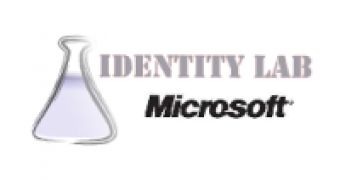Microsoft has positioned itself at the heart of the drive for building a comprehensive Identity Metasystem, a strategic move that is designed to satisfy the increasing need of digital identity security. In this sense, the Redmond company has introduced the Identity Lab. FederatedIdentity.Net has been set up as a hosted service delivering Identity Provider and Relying Party services as well as ensuring that Microsoft's code is interoperable with additional implementations available. Of course the Identity Lab is but one of the puzzle pieces that will ultimately fit into place to create the Identity Metasystem.
"From the site you can create an account and download a managed card. Currently the site requires you to set up relying party policies, so you can specify which RP's you want to be able to send which claims to. A test Relying Parties utilizing a relying party STS and another accepting Information Cards over a regular http (no-SSL) connection are also available there. We plan to continue to add to the site, enabling new scenarios and adding some of our new technologies. I'll be sure to keep you updated as we make changes. Take it for a spin and let us know how it goes", revealed Caleb Baker with the Microsoft Federated Identity Team.
Microsoft promised that the Identity Lab will continue to grow in order to mirror the evolution of the Identity space. In this context, the Redmond company revealed plans to enrich its current collection of offerings provided for the testing of Identity Protocol interoperability. This of course means that Identity Lab is common ground for Identity Protocols across various vendors and partners. "FederatedIdentity.Net is a set of hosted services to support testing of Identity Protocols. As the world shifts to increasing the security of digital identities, it is important to ensure that the underlying protocols used to transfer information about identities is interoperable, which helps to ensure the cohesiveness of the Identity Metasystem", reads a message posted on the Identity Lab website.

 14 DAY TRIAL //
14 DAY TRIAL //